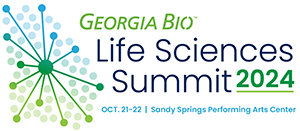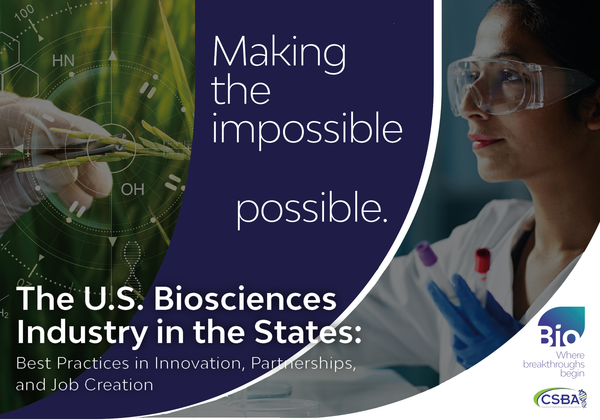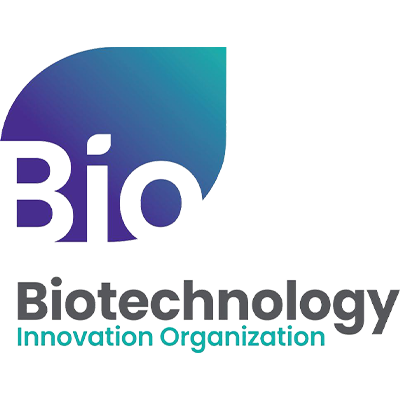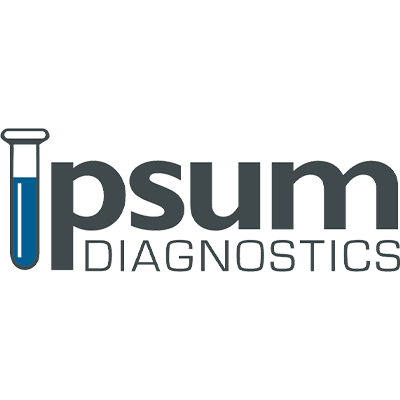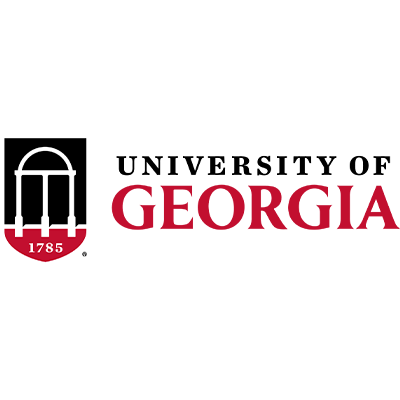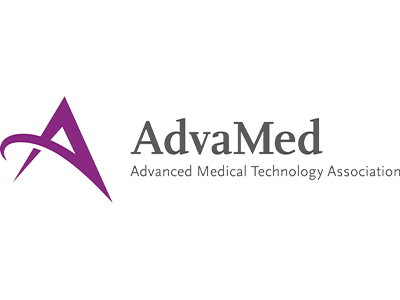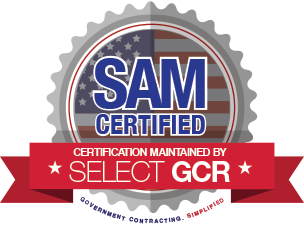Member Voice! Share your news and milestones with Georgia Bio & we will promote to our network. Email Us.
Advancing the growth of Georgia's life sciences industry and fostering strategic partnerships to create a healthier world.
Georgia Life Sciences Summit
The 2024 Georgia Life Sciences Summit will take place October 21-22, 2024 at Sandy Springs Performing Arts Center.
Since its beginning in 2001, the Georgia Life Sciences Summit has grown into a must-attend event for Georgia’s bioscience and medtech community. The Summit provides a forum for professionals from industry, academia and government to discuss major trends and issues, including topics related to scientific research, product development, financing, business development and public policy. It is the one time each year companies and universities have the opportunity to showcase Georgia’s bioscience innovation.
Upcoming Events
Recent News

Member Benefits
Leverage Georgia Bio to benefit you and your organization
Georgia Bio connects you with the decision makers who shape Georgia's life sciences industry. It cements your place in the community of researchers and business people who share the vision of improved health and a better world. It gives your group purchasing power and first dibs on valuable information, while acting as a unified voice amongst policymakers. Most importantly, it fives you a vital role in growing our state's bioeconomy while helping your business prosper.
PUBLIC POLICY

Georgia Bio conducts programs, provides leadership and advocates for life science companies across Georgia that are critical to improving patient care, improving health globally, and to the economic growth of our state.
THOUGHT LEADERSHIP

Georgia Bio fosters community connections and drives thought leadership discussions through diverse forums and committees spanning over a dozen sectors within the life sciences ecosystem, enhancing collaboration and innovation.
COST-SAVINGS

Georgia Bio has partnered with industry leaders that offer top-quality products and services essential to the business operations of members' companies, and has negotiated discounted prices and or enhanced services on behalf of its members.
Level up your life sciences career through Georgia Bio
Georgia Bio's Career Hub serves as a vital platform where employers and job seekers converge. More than just a job board; it's a hub for professional growth, offering and array of resources for skill enhancement and continuing education programs. Whether individuals seek career advancement or employers seek top talent, the Career Hub fosters connections and empowers individuals to thrive in the dynamic bioscience industry.
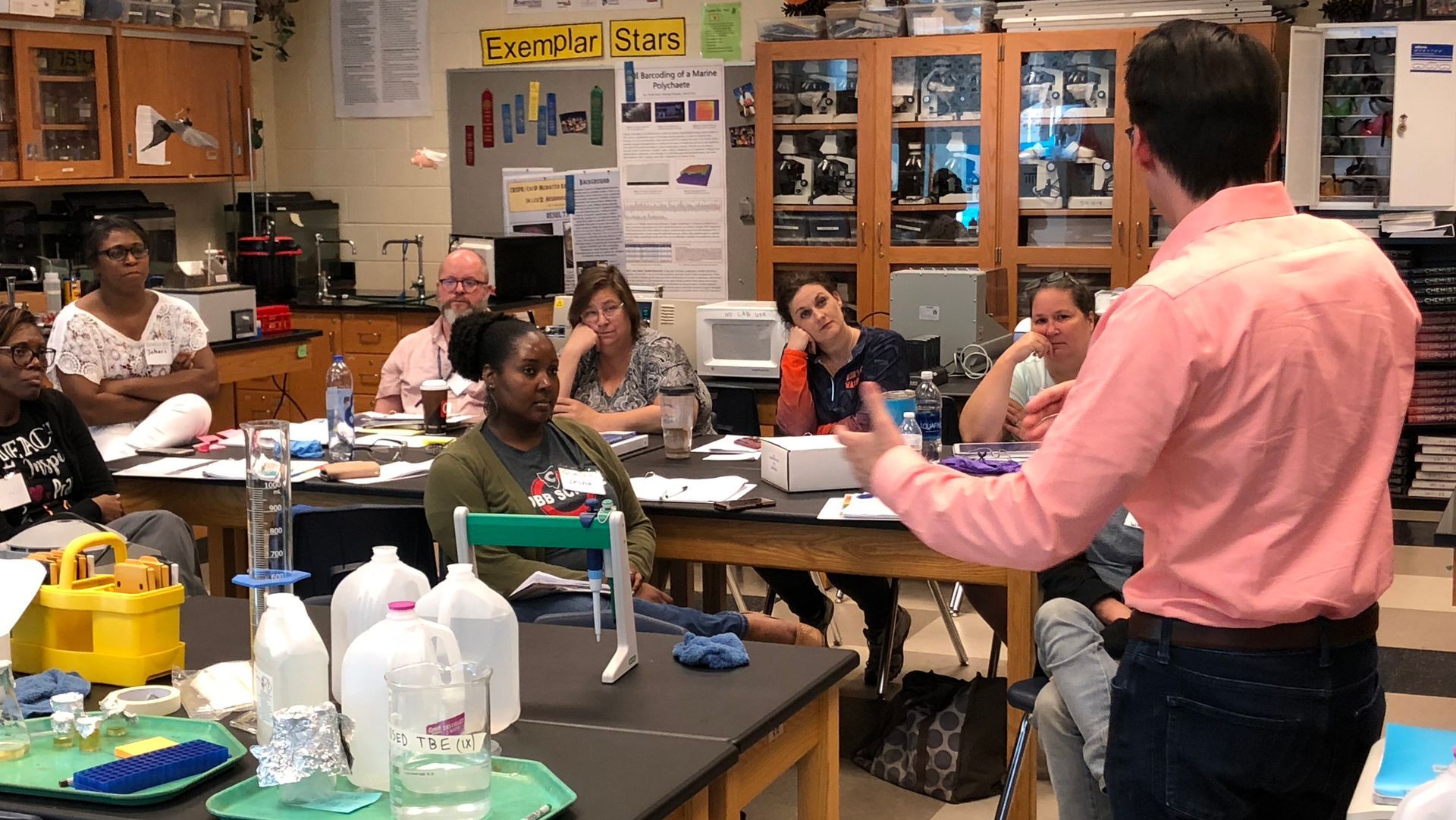
Biotech Teacher Training Initiative
BioEd offers hands-on, immersive science teacher professional development for Georgia teachers. Curriculum is built to highlight and leverage the biotechnology that exists within traditional science courses, including biology and AP biology, chemistry and AP chemistry, physics, environmental biology, agriculture and horticulture, physical science, and life science.
Participants have time to plan and prepare to implement one of the labs from the training within the school year to either enhance a current lesson or replace a less effective lesson. Participants leave the training with a lesson plan as well as a plan with Georgia Bio to receive materials necessary for successful implementation.
Equipment Depot
Georgia BioEd Institute's Equipment Depot provides grade 6-12 teachers with laboratory supplies and equipment needed to prepare students for careers in the life sciences. We collect donations from companies and universities, and distribute supplies into the schools that desperately need them.
Our inventory has included pipettes, tips, gloves, gowns, beakers, graduated cylinders and other glassware, gel rigs, and microcentrifuges, to name a few.
Visiting Scientist
The Center for Global Health Innovation matches industry experts from local Life Science companies with Georgia K-12 science classrooms to share their experiences, scientific knowledge, and information on how science is applied in their businesses.
This program is a unique opportunity for GA students to learn about the wide array of career paths they can pursue in the STEM/Life Sciences fields. Through just one classroom visit you can leave a lasting impact that starts with the simple task of signing up.
Chairman's Circle
Champion Members
Partners
P: 404.221.0617
Fax: 404.448.3982
Email: admin@gabio.org
Address: 8607 Roberts Drive, Suite 250, Atlanta, GA 30350








